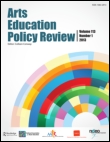eric.ed.gov har udgivet: This booklet provides teachers with information about the No Child Left Behind Act and how it supports teachers. It includes an overview of the law’s “highly qualified” teacher provisions as well as information about other aspects of the law. The booklet offers: “Foreword” (letters from the President of the United States and the Secretary of Education); “What is No Child Left Behind?” (the law that ushered in a new era); “What Does ‘Highly Qualified’ Mean for Teachers?”; “Questions Frequently Asked by Teachers” (teacher quality, accountability, testing, reading, scientifically based research, and safe schools); “Resources and Support for Teachers” (supporting America’s teachers, how No Child Left Behind helps English language learners, reading first: a $6 billion investment to improve the reading skills of young children, how No Child… Continue Reading →
Like this:
Like Loading...
eric.ed.gov har udgivet: This study focuses on flexibility provisions in the Rural Education Achievement Program (REAP) provision of NCLB. Specifically, it addresses REAP Flex, a program that allows rural districts additional control over how to spend portions of their federal funding. REAP Flex is part of a series of NCLB flexibility initiatives aimed at rural schools. The four primary findings of this study were: (1) Half of eligible districts participated in the REAP Flex program; (2) REAP Flex authority was most often used to provide additional funds for services under Title I, Part A. Districts also commonly used REAP Flex to focus on programs related to Title V, Part A (State Grants for Innovative Programs), and Title II, Part D (Educational Technology State Grants). The program funds most commonly used… Continue Reading →
Like this:
Like Loading...
eric.ed.gov har udgivet: The U.S. Department of Education has given Michigan a rare opportunity to devise new educational systems that better serve our state’s students, families and educators. In return, Washington has agreed to waive some provisions of No Child Left Behind. For instance, states will no longer have to ensure that all students are proficient in reading and math by 2014, so long as they adopt more rigorous academic standards and a meaningful system to support schools while holding them accountable. The consequences of the waiver are high. Michigan’s approved waiver request will impact: (1) How well Michigan’s teachers are able to prepare students to meet new academic standards; (2) The helpfulness and reliability of information the state will provide to parents, students and educators on how well their… Continue Reading →
Like this:
Like Loading...
tandfonline.com har udgivet en rapport under søgningen “Teacher Education Mathematics”: Abstract Formulae display:?Mathematical formulae have been encoded as MathML and are displayed in this HTML version using MathJax in order to improve their display. Uncheck the box to turn MathJax off. This feature requires Javascript. Click on a formula to zoom. Abstract It has been asserted that the test-based accountability of No Child Left Behind (NCLB) increased instruction in tested subject areas reading and math, leading to reductions in arts education. We tested this using two waves of data, before and after NCLB implementation, in a difference-in-differences design. The analyses indicated that the total teacher workforce increased substantially during this time period, while the percentage of reading and math educators remained constant, leading to an overall increase in the teacher… Continue Reading →
Like this:
Like Loading...
eric.ed.gov har udgivet: This paper reviews nationwide education reforms under No Child Left Behind and state reforms in Florida–comparing federal and state results. The paper examines the danger that federal regulations and incentives pose to testing and accountability systems in Florida and every other state. The limits of No Child Left Behind and the promise of Florida’s success suggest that federal policies that give states greater authority to direct education reform hold promise for improving education when states and citizens commit to effective reforms. The paper states that as policymakers review No Child Left Behind, Congress and the Obama Administration should recognize three important lessons: (1) No Child Left Behind has failed to deliver meaningful improvement in student learning; (2) Florida’s experience demonstrates the opportunity for state-directed education reform; and… Continue Reading →
Like this:
Like Loading...
eric.ed.gov har udgivet: This research examines the impact of the No Child Left Behind (NCLB) Act on elementary science education within a Midwestern state possessing strong national education measures. Elementary teachers (N = 164) responded to an online survey, which included both closed-ended and open-ended questions pertaining to science instruction and changes made in science instruction since the implementation of NCLB. More than half of these teachers indicated they have cut time from science instruction since NCLB became a law. The reason given for this decrease in science education was mainly the need to increase time for math and reading instruction. (Contains 3 figures.) Link til kilde
Like this:
Like Loading...
eric.ed.gov har udgivet: It is ironic that although children often form lasting decisions, at a young age, about their aptitude for and interest in science we are least successful at preparing elementary teachers to nurture their students’ science interests. This is despite the fact that most elementary teachers teach in contained classrooms where they are responsible for science content at this critical, developmental stage for their students. Science preparation for preservice, elementary teachers is traditionally relegated to large, general-education lecture courses. Even when these courses have laboratories, they tend to depend on cook-book style exercises where procedures are given and the outcomes are known. This leaves many pre-service, elementary teachers not only ill-prepared, but also fearful of the science content that they must teach. We here advocate a change in… Continue Reading →
Like this:
Like Loading...
